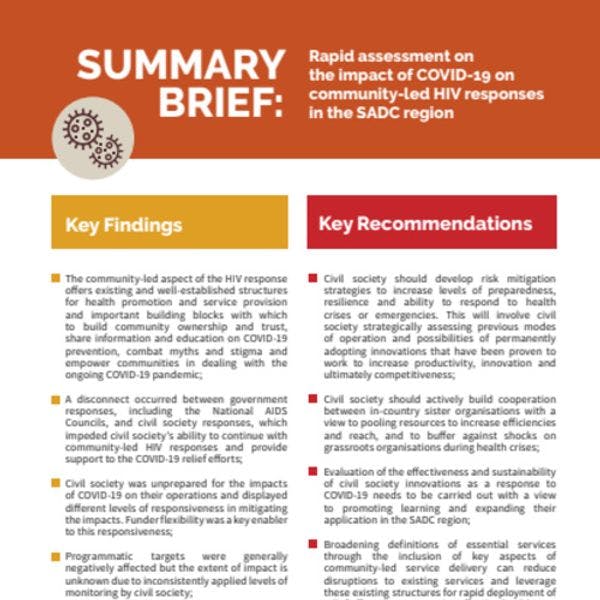ARASA
Evaluación rápida del impacto de COVID-19 sobre las respuestas al VIH lideradas por la comunidad en la región SADC
ARASA resalta los retos que enfrentan poblaciones clave en la respuesta al VIH, incluyendo la interrupción del acceso a servicios para reducción de daños orientados a personas que consumen drogas. Más información, en inglés, está disponible abajo.
By AIDS and Rights Alliance for Southern Africa
After the first COVID-19 case was detected in the SADC region in early March 2020, countries imposed restrictions or lockdowns of differing intensity and duration as an urgent response in dealing with the health crisis posed by the pandemic. These measures disrupted social and economic life and access to health services, many of which were reconfigured to manage COVID-19 cases. In the SADC region, national responses to COVID-19 occurred in a context of systemically weak and under resourced health systems and high burden of HIV, and other chronic illnesses among the populace.
Community-led or outreach activities play a key role in mobilizing communities, combatting stigma, holding government accountable in policy and practice, and supporting health systems as well as have unique reach to populations who are disproportionately burdened by the HIV epidemic. Community-led HIV responses are the cornerstone to the HIV response in the region but little is known about the impacts of the COVID-19 measures on the gains the region has made in the provision of HIV prevention, care and treatment.
This brief presents the findings of a rapid assessment amongst 25 civil society organisations involved in the HIV response across the SADC region and provides recommendations for sustaining the community-led HIV response in the face of ongoing and future health crises.
